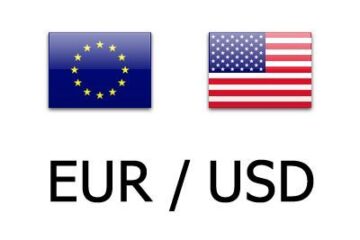The stock market has sizzled this year, with the S&P 500 index jumping 16% year to date and hitting 38 record highs.
But analysts have mixed views on whether the market will continue its ascent.
On the plus side, inflation is easing, with consumer prices rising 2.9 months in the 12 months through July, the smallest increase since March 2021.
Michael Wilson of Morgan Stanley, one of the stock market’s top strategists.
Job growth is decelerating too, with non-farm payrolls totaling 114,000 in July, down from the 215,000 average for the prior 12 months.
These statistics have experts expecting the Federal Reserve to begin cutting interest rates this month. That would presumably stimulate the economy and thereby boost corporate earnings.
Earnings growth, stock valuations
FactSet puts together a measurement of earnings growth that blends the earnings of S&P 500 companies who have already reported their second-quarter results with analysts’ forecasts for the companies who haven’t.
As of Aug. 16, with 93% of S&P companies having reported, blended second-quarter earnings growth stands at 10.9%. If that’s the final figure, it would be the highest since the fourth quarter of 2021.
Those strong earnings already are supporting stocks. And analysts predict another solid increase, 5.2%, in the third quarter.
Related: Goldman Sachs and Vanguard lay out latest stock forecasts
But many experts think the market is overvalued. As of Aug. 16, the forward price-earnings ratio for the S&P 500 was 21, easily topping the five-year average of 19.4 and the 10-year average of 17.9.
Stock bears also note that the artificial intelligence mania, which sent mega-cap technology stocks soaring, is starting to wane. Shares of Nvidia, the semiconductor maker that is the poster child for AI, have dipped 1% over the past three months.
The S&P 500 dropped 2% Sept. 3 as of late afternoon Eastern time.
Morgan Stanley’s view on stocks
Michael Wilson, chief U.S. equity strategist for Morgan Stanley, says the market’s direction depends on Friday’s August jobs report.
“A stronger-than-expected payroll number and lower unemployment rate would likely provide markets with greater confidence that risks [to economic] growth have subsided,” he wrote in a commentary.
And that would “pave the way for equity valuations to remain elevated and a potential catch-up in some other markets/stocks that have lagged.” Much of the stock market’s climb this year has been fueled by big tech stocks: Alphabet, Amazon, Apple, Microsoft and Nvidia.
Related: Morgan Stanley reveals top stock picks, including Nvidia
Morgan Stanley economists anticipate an above-consensus 185,000 increase in payrolls for August, up 62% from July. They anticipate an unemployment rate of 4.2%, down from 4.3% in July.
But, “another weak report [like July’s] and a further rise in the unemployment rate would likely rekindle growth fears and pressure equity valuations like last month,” Wilson said. The S&P 500 slipped 8.5% from July 16 through Aug. 5.
For stock investors, Wilson recommends focusing on defensive businesses that prioritize operational efficiency, have durable pricing power, or both.
“The consumer staples stocks on our Fresh Money Buy List – Walmart (WMT) , Colgate-Palmolive (CL) , Coca-Cola (KO) – encompass these themes,” he said.
JPMorgan’s take on stocks
Mislav Matejka, chief global equity strategist at JPMorgan Chase, put things a bit differently than Wilson. Stocks may fizzle, even if the Fed cuts rates, he wrote in a commentary cited by Bloomberg.
A Fed rate reduction would stem from slowing economic growth, he said. And that slowdown could be bad for the stock market. Also, September is the weakest month for equities historically, he noted.
Expert stock picks:
Fund manager picks 3 best-of-breed stocks (including Chevron)Fund manager picks three blue chip stocks$10 billion fund manager picks three favorite stocks
“We are not out of the woods yet,” Matejka said, “Sentiment and positioning indicators look far from attractive, political and geopolitical uncertainty is elevated, and seasonals are more challenging again in September.”
Political uncertainty includes the presidential election. And geopolitical uncertainty includes the wars in Ukraine and the Mideast. Just like Wilson, Matejka favors defensive stocks.
The author owns shares of Walmart and Coca-Cola.


